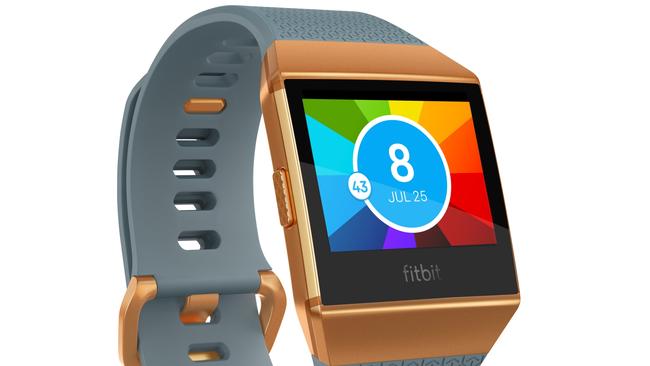Fitbit launches its first smartwatch, Ionic, but is it too late to compete with Apple and Samsung?
FITBIT has launched its Ionic smartwatch and the company’s CEO says the health-tracking device will finally ‘give people a reason to buy’ wearable technology.
Gadgets
Don't miss out on the headlines from Gadgets. Followed categories will be added to My News.
IN THE WORLD of wearable technology, there is no bigger name than Fitbit.
The 10-year-old brand is synonymous with fitness trackers, seen on wrists around the world, and commands a loyal following, with 3.4 million devices sold between April and June alone, according to IDC.
Fitbit has even been credited with everything from diagnosing pregnancies, to unearthing heart problems, and exposing marital infidelities.
But Fitbit is also a company with a substantial challenge ahead. While it created fitness-tracking as we know it, the company has eschewed smartwatches until now.
The Fitbit Ionic became its first official smartwatch release this week but, with greater competition, could it be too late?

Fitbit co-founder James Park, who visited Australia for the Fitbit Ionic launch, says it’s not a case of early or late but about making a compelling case for consumers to buy a smartwatch at all.
Many smartwatch to launch smartwatches have got the technology wrong, he says.
“Why would you wear a smartwatch? I think the answer for many people is still unclear,” Park says.
“For us, we’re entering the market as a brand that’s synonymous with health and fitness-tracking, we’re health and fitness-focused first, so we’re giving people a reason to buy into this category.”
READ MORE: Five best new smartwatches reviewed and rated
The $450 Ionic smartwatch certainly looks different to its smartwatch rivals, with a square screen, a flat form, and its own software and watch faces.
But Park says its most distinguishing features are its health sensors and capabilities, which will become better over time.
In addition to its heart-rate sensor, the Ionic features an altimeter to detect your elevation, a GPS chip with integrated antenna for a stronger satellite connection, three-axis accelerometers to detect movement, and an SpO2 sensor.
This latter inclusion is a first in a smartwatch and can be used to detect oxygen levels in the blood.

Park says it “is going to be active and it’s going to be collecting data” from launch, even though that information will only become useful later when software is created to analyse its results.
It could be used to determine whether Fitbit Ionic wearers suffer from sleep apnoea, for example, a potentially dangerous condition in which patients regularly stop breathing during sleep.
Park says Fitbit will work with health agencies around the world, including America’s Food and Drug Administration, to ensure its smartwatch is medically approved to diagnose the illness and recommend wearers seek medical attention.
“Regulatory bodies around the world are actually really eager to figure this out with companies,” he says.
“This hybrid device has a lot of health and fitness potential for patients.”
Fitbit is also hosting medical trials of an algorithm that works with its heart-rate sensor to detect atrial fibrillation, which greatly increases a person’s risk of stroke, and Park says preliminary results show it can diagnose 98 per cent of cases.
Fitbit’s Ionic will have to prove itself to more than just the medical community, however.
While Fitbit has produced a host of popular fitness trackers, Apple has released three smartwatches, including a new cellular addition with better heart-rate tracking, Samsung has refined the design of its round-faced smartwatches, and Huawei’s wrist-based technology now has a 4G connection.
IDC Mobile Device trackers senior research analyst Jitesh Ubrani says Fitbit is in a crucial period but it may have timed its smartwatch transition well, as more buyers are upgrading their wearable tech.
“For years, rudimentary fitness trackers have acted as a gateway to smartwatches and now we’re at a point where brands and consumers are graduating to a more sophisticated device,” he says. “The transition towards more intelligent and feature-filled wearables is in full swing.”
Originally published as Fitbit launches its first smartwatch, Ionic, but is it too late to compete with Apple and Samsung?
